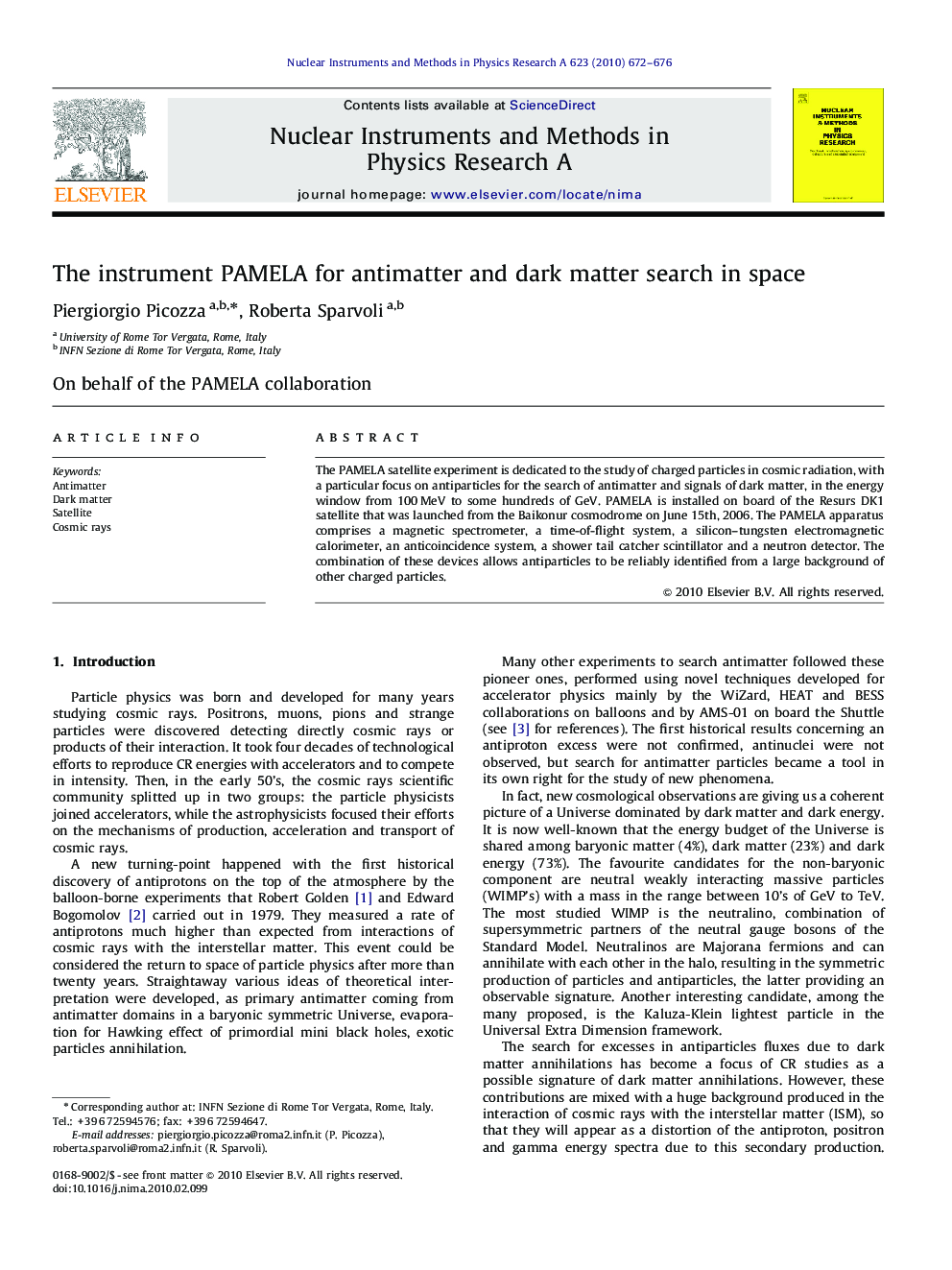| Article ID | Journal | Published Year | Pages | File Type |
|---|---|---|---|---|
| 1825897 | Nuclear Instruments and Methods in Physics Research Section A: Accelerators, Spectrometers, Detectors and Associated Equipment | 2010 | 5 Pages |
Abstract
The PAMELA satellite experiment is dedicated to the study of charged particles in cosmic radiation, with a particular focus on antiparticles for the search of antimatter and signals of dark matter, in the energy window from 100Â MeV to some hundreds of GeV. PAMELA is installed on board of the Resurs DK1 satellite that was launched from the Baikonur cosmodrome on June 15th, 2006. The PAMELA apparatus comprises a magnetic spectrometer, a time-of-flight system, a silicon-tungsten electromagnetic calorimeter, an anticoincidence system, a shower tail catcher scintillator and a neutron detector. The combination of these devices allows antiparticles to be reliably identified from a large background of other charged particles.
Related Topics
Physical Sciences and Engineering
Physics and Astronomy
Instrumentation
Authors
Piergiorgio Picozza, Roberta Sparvoli, On behalf of the PAMELA collaboration On behalf of the PAMELA collaboration,
